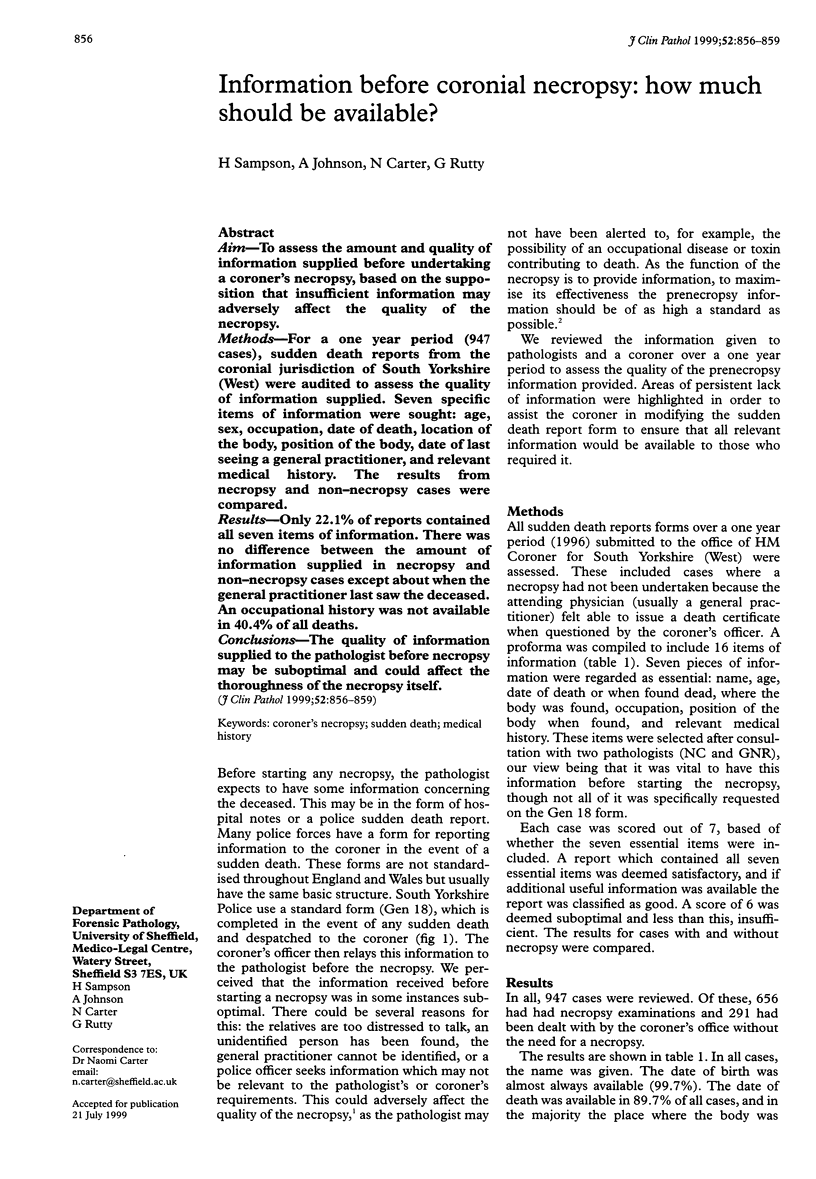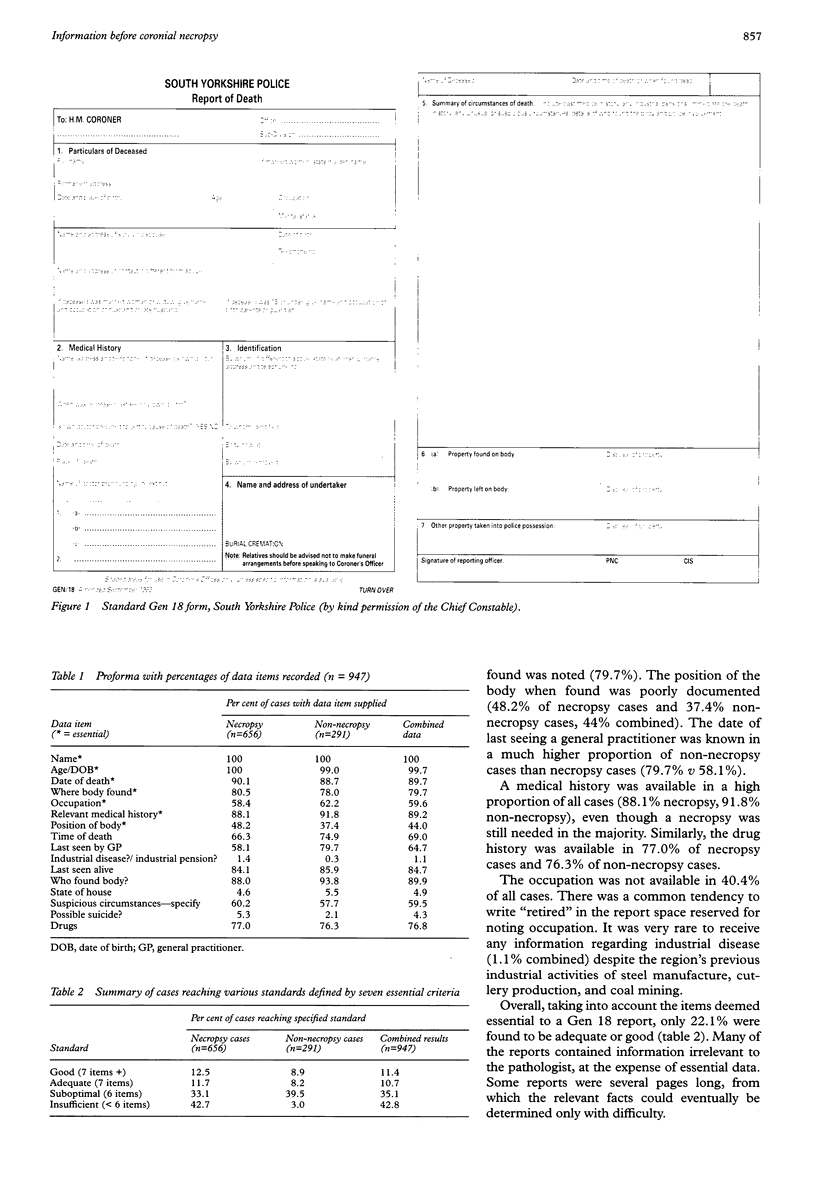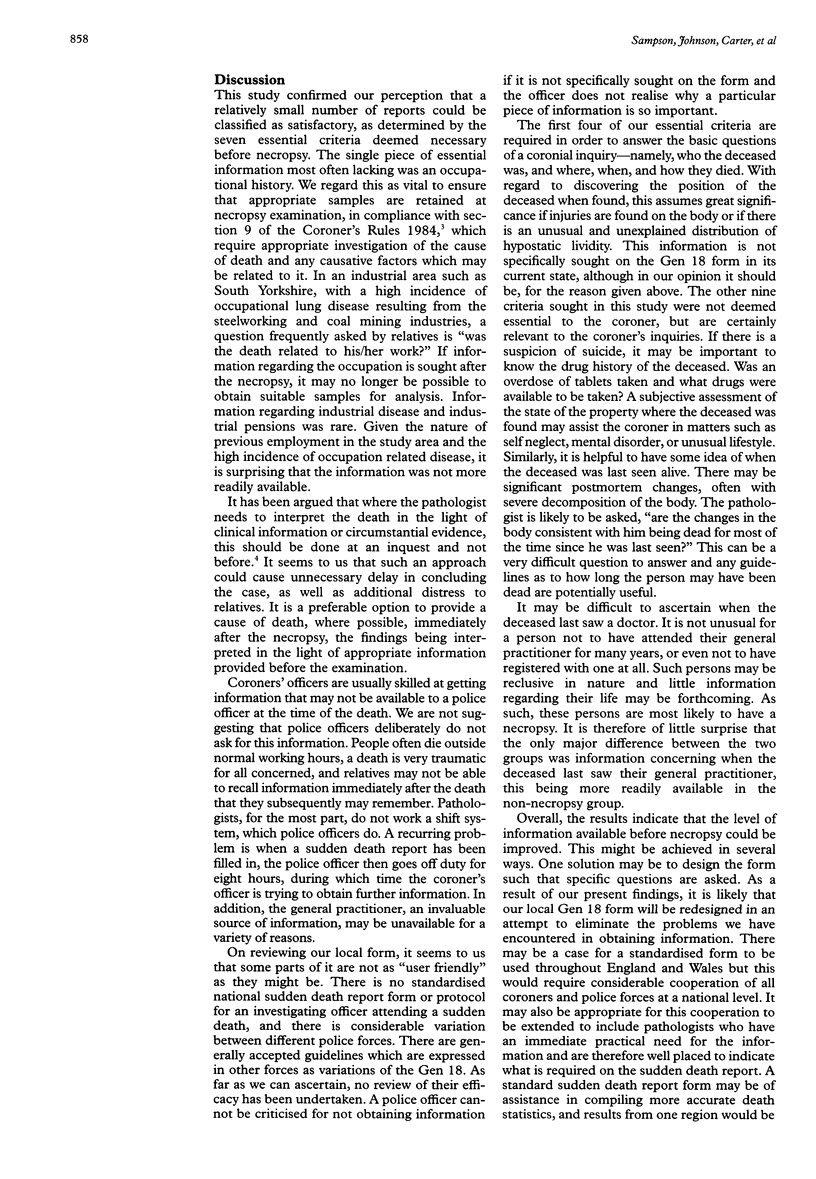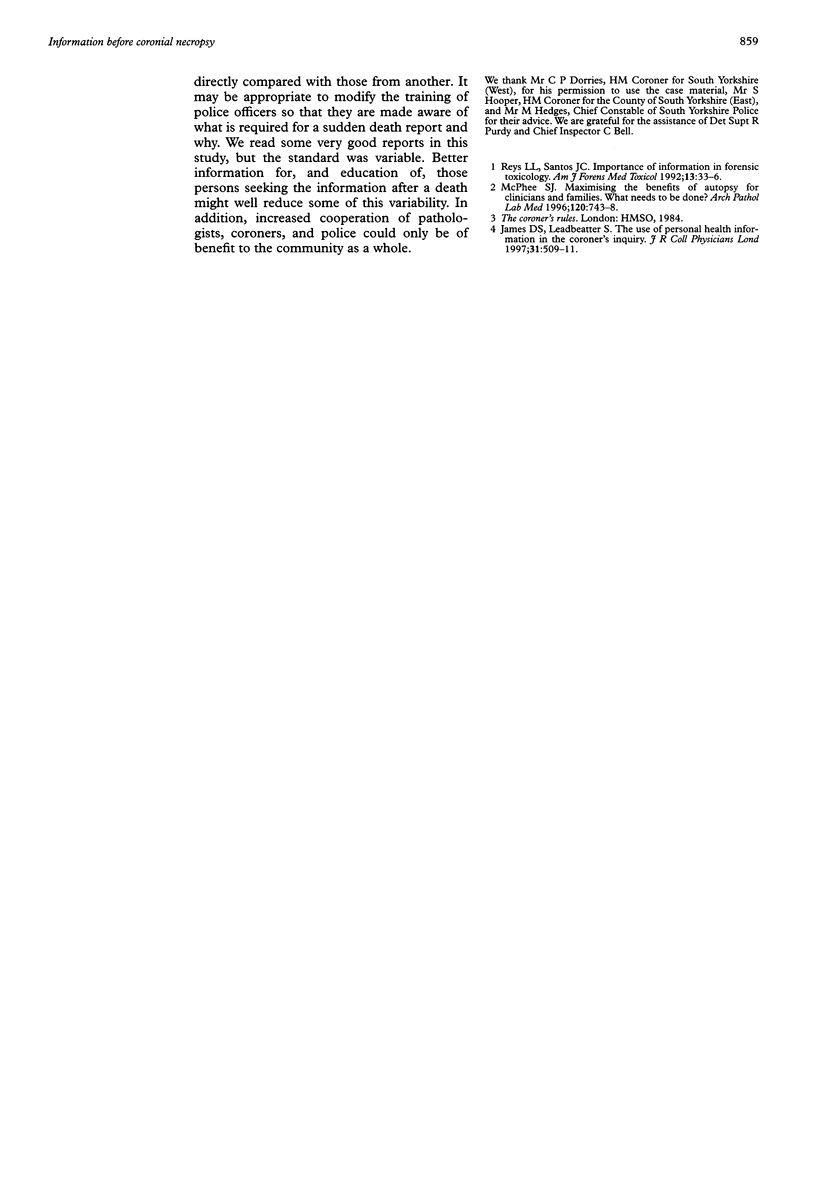Abstract
AIM: To assess the amount and quality of information supplied before undertaking a coroner's necropsy, based on the supposition that insufficient information may adversely affect the quality of the necropsy. METHODS: For a one year period (947 cases), sudden death reports from the coronial jurisdiction of South Yorkshire (West) were audited to assess the quality of information supplied. Seven specific items of information were sought: age, sex, occupation, date of death, location of the body, position of the body, date of last seeing a general practitioner, and relevant medical history. The results from necropsy and non-necropsy cases were compared. RESULTS: Only 22.1% of reports contained all seven items of information. There was no difference between the amount of information supplied in necropsy and non-necropsy cases except about when the general practitioner last saw the deceased. An occupational history was not available in 40.4% of all deaths. CONCLUSIONS: The quality of information supplied to the pathologist before necropsy may be suboptimal and could affect the thoroughness of the necropsy itself.
Full text
PDF



Images in this article
Selected References
These references are in PubMed. This may not be the complete list of references from this article.
- James D. S., Leadbeatter S. The use of personal health information in the coroner's inquiry. J R Coll Physicians Lond. 1997 Sep-Oct;31(5):509–511. [PMC free article] [PubMed] [Google Scholar]
- McPhee S. J. Maximizing the benefits of autopsy for clinicians and families. What needs to be done. Arch Pathol Lab Med. 1996 Aug;120(8):743–748. [PubMed] [Google Scholar]
- Reys L. L., Santos J. C. Importance of information in forensic toxicology. Am J Forensic Med Pathol. 1992 Mar;13(1):33–36. doi: 10.1097/00000433-199203000-00007. [DOI] [PubMed] [Google Scholar]



